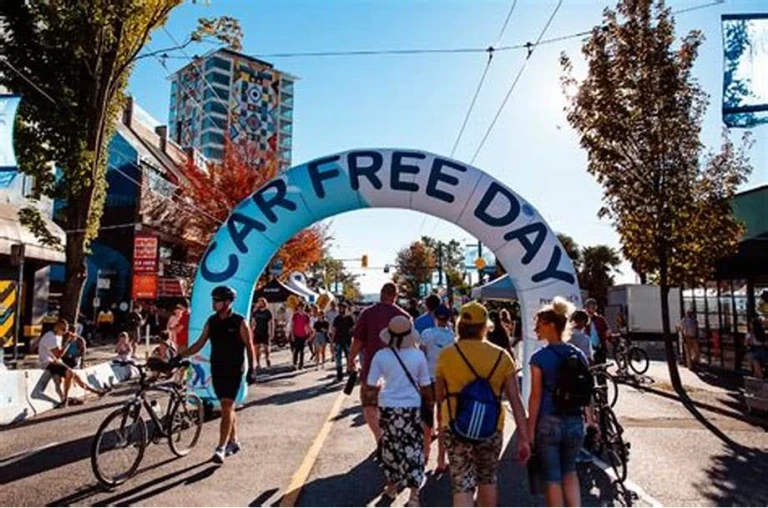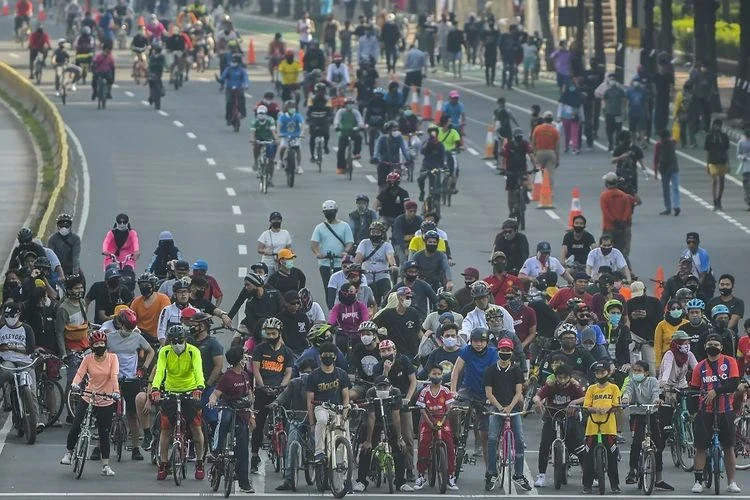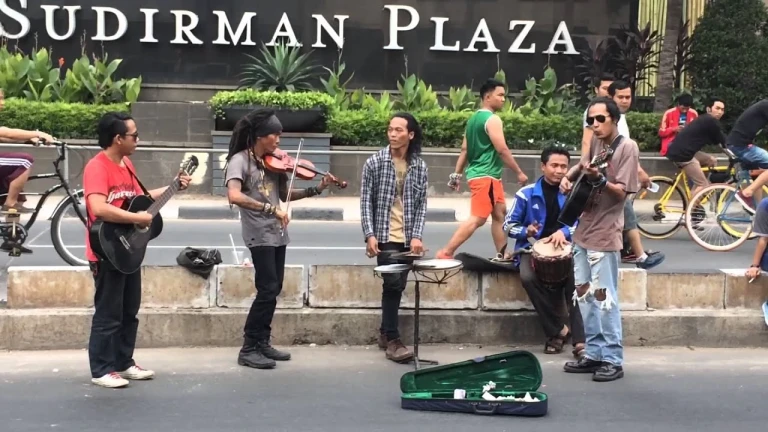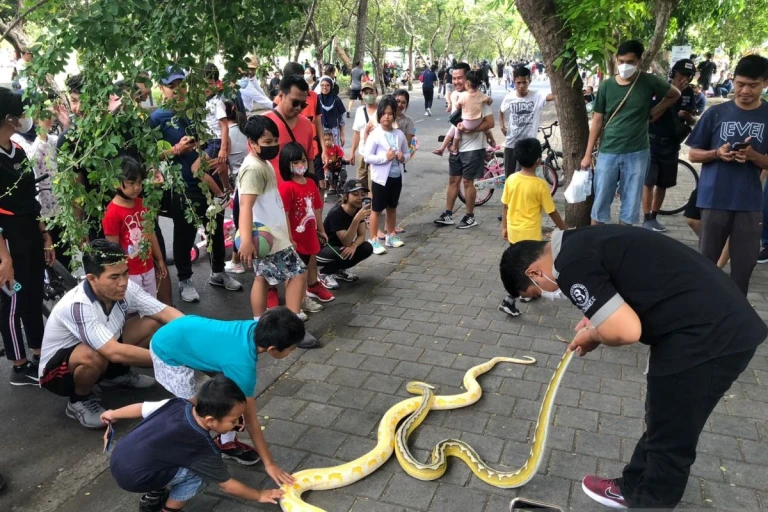
Car-Free Day (CFD) is a movement aimed at reducing people's dependence on vehicles and advocating for environmental protection. Activists recognize the dangers of global warming and the importance of reducing fuel emissions. The goal of the event is to encourage the population to walk more, leaving behind motorcycles and cars.
Various competitions and bike rides are organized during the event. In Indonesia, it wouldn't be complete without food and drink vendors. Roads are closed during the event, with officials guarding the path and allowing only bicycles to enter.
Some statistics: Cars contribute to about 85% of the total harmful substances in the atmosphere. Motorcycle emissions, especially from two-stroke engines, are even more dangerous. All of these are serious sources of pollution and pose risks to people's health.
How is Car-Free Day celebrated in Indonesia?
Jakarta
Car-Free Day was initiated by the Jakarta government not only to reduce air pollution but also to encourage people to engage in sports, take walks with friends and family, believing it would contribute to improving public health and strengthening relationships. The program takes place every Sunday on Tamrin Street and in the old city area.

The first Car-Free Day in Jakarta was held on May 23, 2002, and the tradition continues. The ecological protection coalition initially organized the event on the last Sunday of each month in Jakarta from 06:00 to 14:00 but later changed the time to 06:00 to 11:00. On Sunday mornings, major roads in Jakarta turn into wide avenues. There's plenty of space for cycling, jogging, skateboarding, or simply walking.
There are numerous videos on YouTube about this day, providing a real-life glimpse of this bustling event. Visiting Car-Free Day at least once and witnessing it firsthand is worthwhile, if you manage to wake up that early.
Yogyakarta
The city administration of Yogyakarta also organizes Car-Free Day, which includes an interesting program: entertaining performances, fashion shows, sports activities, concerts, and numerous stalls offering various goods. In this city, the struggle is not only for the cleanliness of the environment. Similar events help the population increase income and improve the city's economic situation. But more importantly, the program livens up the atmosphere and boosts the mood of local residents!
Car-Free Day is usually held on roads in the city center. It takes place on the well-known Malioboro Street, where there are several supermarkets, the Beringharjo Market selling batik fabrics, clothing, bags, kitchenware, souvenirs, bracelets, gold, and, of course, many food stalls.

There is an incredible number of shops, restaurants, and other places for tourists. Besides Malioboro Street, Car-Free Day is also held on Jenderal Sudirman Street. You can listen to jazz music, various songs by local artists, see the dances of beautiful Indonesians. Performances of angklung, percussion, string, and other musical instruments by street artists also take place here.
Denpasar, Bali
On September 11, 2022, Car-Free Day in Bali was finally resumed after a two-year hiatus due to the COVID-19 pandemic. The highways in Denpasar, Kuta, Ubud, and Sanur are closed to traffic, giving freedom to pedestrians, cyclists, and skateboarders.
The event is usually held every Sunday morning from 06:00 to 10:00. This provides an opportunity to shop at flea markets, where various used and inexpensive items, antiques, unique clothes, accessories, books, toys, household appliances, and more are sold.

There are also cockfights, competitions in various sports, and shows with pythons. After walks and shopping, it's easy to find a place to refresh. Street vendors, knowing that there will be an influx of visitors, sell traditional Balinese food and drinks, trying to make some extra money.
Address: Alarishop Car Free Day Bali.
Phone: +6289530640222.
Surakarta (Solo)
In Solo, Car-Free Day attracts many visitors who also want to enjoy the relaxed and healthy atmosphere of the city. The event's feature is diverse trade: food, fruit ice, iced tea, coffee, toast, fried bananas, martabak, grilled sausages, and more are sold.
There are also health and beauty products: herbal soap, aromatherapy oils, face masks, body scrubs, and more. Handmade items and accessories such as bracelets, necklaces, earrings, brooches, knitted bags, dolls, paintings, and others are presented. But most often, people here engage in sports, walk their dogs, or simply stroll with children, participate in art drawing contests, and other games.
Bandung
The city authorities of Bandung care about the comfort and health of local residents and city guests, so they decided to regularly hold Car-Free Day twice a month, specifically on the first and third weeks.
Authorities noticed the enthusiasm of the population, and the event became permanent. Residents are happy that they can enjoy fresh air, socialize with friends and children, and lead a healthy lifestyle. The peak activity of Car-Free Day usually occurs from 8:00 AM to 9:00 AM, starting early in the morning from 5:00 AM to 9:30 AM.
The list of all cities where this beneficial day is organized can be found here.
In which country was Car-Free Day first invented?
The campaign to reduce air pollution in major cities worldwide caused by motor transport began on November 25, 1956, in the Netherlands and Belgium. Then, in France in 1995, a party dedicated to the Green Transport Week was held in the city of Bath. Everyone took to the streets to celebrate this event and enjoy it with family and friends. Eventually, Car-Free Day is celebrated worldwide every year on September 22.
In Indonesia, this event first started in 2000 in Surabaya and later, other cities joined.
To this day, Indonesian residents enjoy attending Car-Free Day, relaxing, and cherishing good memories of productive days.



You can add one right now!